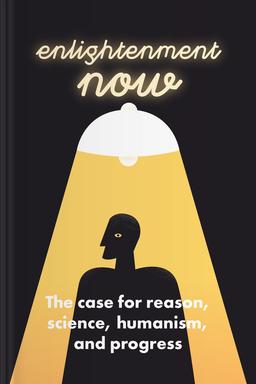What is How We Got to Now about?
This book explores the history of six groundbreaking innovations that transformed society: glass, cold, sound, clean, time, and clean water. By tracing the interconnected stories behind these inventions, it reveals how they shaped our modern world and transformed our daily lives in unexpected ways. Through captivating narratives, the author highlights the ripple effects of innovation, demonstrating how one idea leads to another, often producing unforeseen consequences.
Who should read How We Got to Now
- History enthusiasts interested in technological advancements.
- Students studying the impact of inventions on society.
- Curious readers wanting to explore the roots of modernity.
What is Enlightenment Now about?
This thought-provoking book argues for the importance of reason, science, and humanism in driving societal progress. Drawing on data and historical trends, it illustrates how advancements in technology, health, and governance have improved human life. Challenging pessimistic views, it advocates for a rational approach to addressing global challenges, emphasizing that through knowledge and Enlightenment principles, humanity can continue to achieve positive change and overcome obstacles.
Who should read Enlightenment Now
- Fans of science and reason-based arguments
- Advocates of humanism and progress
- Readers interested in rational optimism and critical thinking
What is Factfulness about?
This insightful book challenges common misconceptions about global trends, revealing how the world is improving in numerous ways. Through engaging data and compelling anecdotes, it explores ten biases that distort our understanding of reality, urging readers to adopt a fact-based worldview. By highlighting progress in health, poverty, and education, it inspires optimism and encourages a clearer perspective on global issues.
Who should read Factfulness
- Data enthusiasts seeking a more accurate worldview.
- Students and educators needing facts over misconceptions.
- Anyone wanting a positive perspective on global progress.


